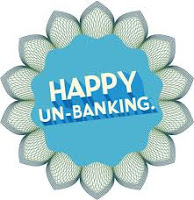Activist Post March 30 2013
Mayor Bloomberg’s palatial residenceThere are two types of people in this world; those who worship the ideal of centralized command authority, and those who do not. Those who value freedom regardless of risk or pain, and those who value slavery in a desperate bid to avoid risk and pain. When I consider the ultimate folly of man, in the end I look to the meek and unquestioning masses who strive to avoid risk, because it is they who always end up feeding the machines of war, despair, and tyranny. The power thirsty halls of elitism surely instigate and manipulate the tides of this wretched ocean of quivering souls, but ultimately, the weak-hearted and weak minded make all terrible conquests possible.
They live by the rule of fear, and their fear drives them to seek control; control of their environment, control of others, and by extension they believe, control of the future. They attempt to mitigate their overwhelming fear by containing the world and sterilizing it of everything wild, untamed, and unknown. They dream of a society of pure predictability, and zero responsibility. They are willing to sacrifice almost anything to attain this position of artificial comfort.
The concept of “big government” appeals to such people for many reasons…
Government in most cases is nothing but an abstraction. It is merely a tool that serves the interests of a particular group of people at any given time. Modern politics is an expression of the foolish cat fight between factions of people to decide who gets to wield the weapon of government and impose their ideology on the rest of us. At least, that’s what it almost always devolves into. The great illusion of the system, though, is that ANY group of average people ever actually wields any power. The truth is, big governments are always operated by very small and exclusive clubs of root beneficiaries out of the sight of the population.
The smaller this dominant group becomes, the more corrupt and criminal the government generally is. A government reaches a state of despotism whenever its functions are twisted for the sake of an elite few to the detriment of the common man, and when it ignores the natural inborn rights of the individual for the sake of some fabricated collective . If one were to closely examine the birth of every iron-fisted oligarchy throughout history, they would find a cyclical pattern of centralization; the removal of checks and balances, the removal of legitimate public involvement in the political process, a dependent and infantized citizenry, and the rise of a “bureaucratic class” which regards itself as superior and born to lead. All steps taking place within Western societies today.

 Breaking up is hard to do, especially when it is with a tracking service like a financial institution.
Breaking up is hard to do, especially when it is with a tracking service like a financial institution.